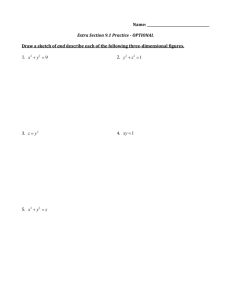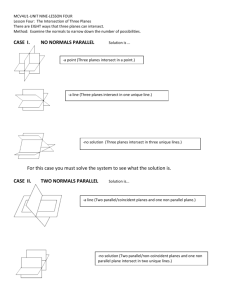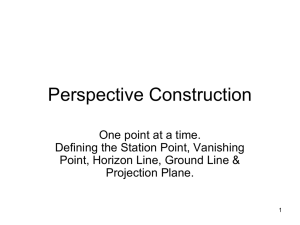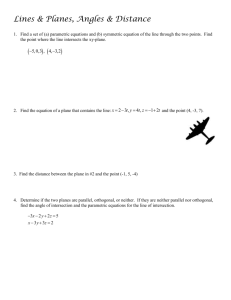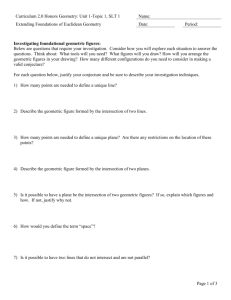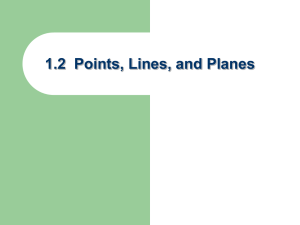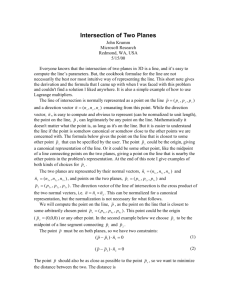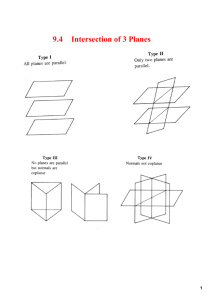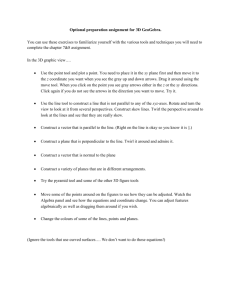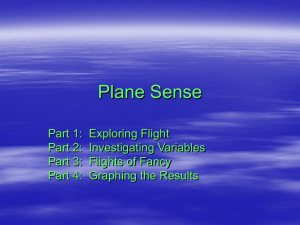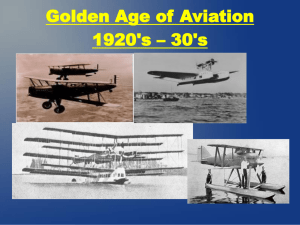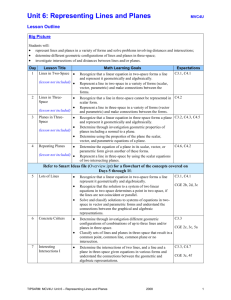Intersection of Two Planes
advertisement
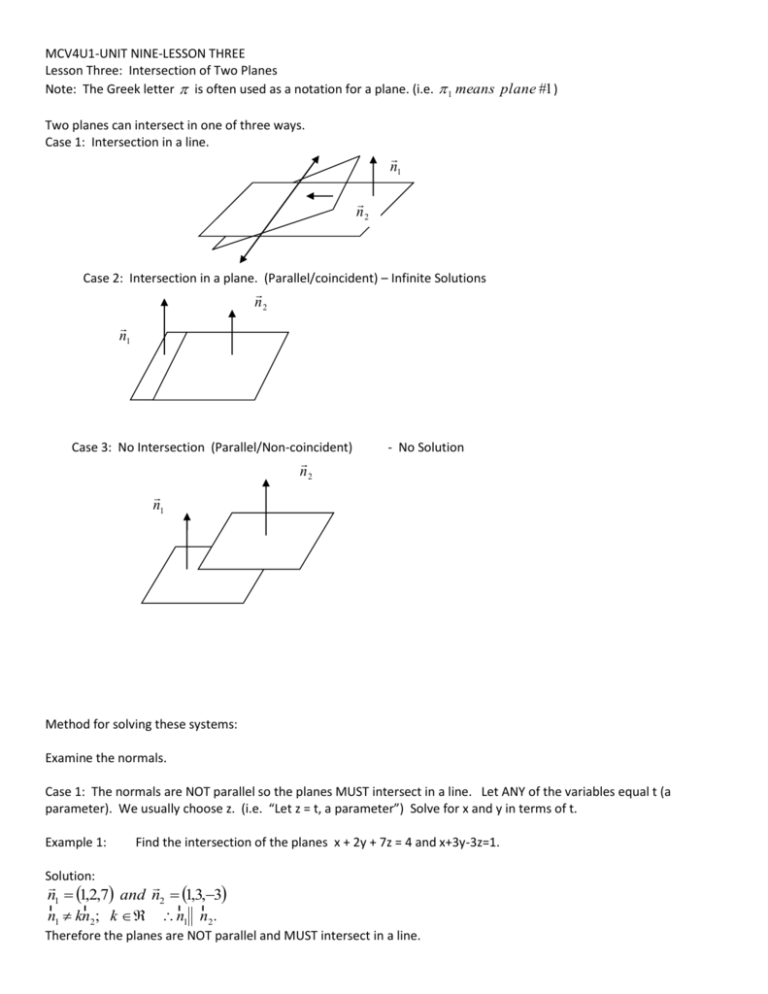
MCV4U1-UNIT NINE-LESSON THREE Lesson Three: Intersection of Two Planes Note: The Greek letter is often used as a notation for a plane. (i.e. 1 means plane #1 ) Two planes can intersect in one of three ways. Case 1: Intersection in a line. n1 n2 Case 2: Intersection in a plane. (Parallel/coincident) – Infinite Solutions n2 n1 Case 3: No Intersection (Parallel/Non-coincident) n2 - No Solution n1 Method for solving these systems: Examine the normals. Case 1: The normals are NOT parallel so the planes MUST intersect in a line. Let ANY of the variables equal t (a parameter). We usually choose z. (i.e. “Let z = t, a parameter”) Solve for x and y in terms of t. Example 1: Find the intersection of the planes x + 2y + 7z = 4 and x+3y-3z=1. Solution: n1 1,2,7 and n2 1,3,3 r r r r n1 kn2; k n1 n2 . Therefore the planes are NOT parallel and MUST intersect in a line. MCV4U1-UNIT NINE-LESSON THREE Let z=t, a parameter....... Then the equations become..... 1 : x + 2y = - 7t + 4 2 : x + 3y = 3t + 1 1 2 : y 10t 3 y 10t 3 sub in 1 : x 2(10t 3) 7t 4 x 27t 10 Therefore the solution is the line x = - 27t + 10 y = 10t - 3 z=t r r Case 2: The normals are parallel then n1 kn2; k R. Since the planes are coincident, the constants in the equations “D” will have the same relationship as the normals. That is, D1 kD2; k . In fact, it may be easier to just remember that one equation is a scalar multiple of the other equation. of the planes 2x-4y+8z=10 and 3x-6y+12z=15. Example 2: Find the intersection Solution: 3r r r r r r n1 2,4,8 and n 2 3,6,12, so n 2 n1, n1 n 2 2 3 3 Check for coincidence…. Is D2 D1 ? ....... yes, b /c 15 10 2 2 Therefore the planes are parallel and coincident. We say the intersection is the plane given in parametric form, as follows….. Let z=t and y=s, where t and s are parameters. Using EITHER equation (I chose the first one), solve for x in terms of s and t. 2x 4 y 8z 10 2x 4s 8t 10 2x 4s 8t 10 x 2s 4t 5 x 2s 4t 5 Therefore the solution is the plane y s . zt r r Case 3: The normals are parallel then n1 kn2; k R. Since the planes are non-coincident, the constants in the equations “D” will NOT have the same relationship as the normals. That is, D1 kD2; k . Example 3: Find the intersection of the planes x-y-5z=3 and 2x-2y-10z=4. Solution: r r r r r r n1 1,1,5 and n2 2,2,10, so n2 2n1, n1 n2 Check for coincidence….. Is D2 2D1 ? ....... no, b/c 4 2 3 Therefore the planes are parallel/non-coincident and there
